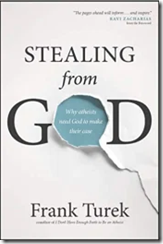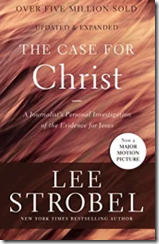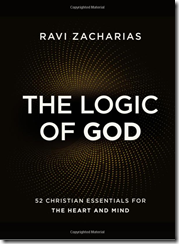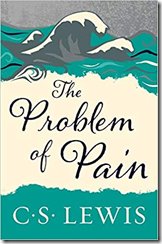Overview
I can’t possibly cover everything on this website. Plus, that has already been done exhaustively by others smarter than me. However, I can help curate some key resources I’ve found. First, some books on “Christian apologetics”, or the formal case for Christianity:
I Don’t Have Enough Faith to be an Atheist (Geisler/Turek)
This is perhaps the easiest presentation of “the entire case” of there being a Creator God, and for Jesus Christ to be the only pathway to God. If you read this, you can at least say that you’ve heard the whole case. As far as I know, this is everything. It covers from the Big Bang and before, to Christs resurrection and the secular evidence for that, and the writings of the Bible to be absolutely true.
Also, as the title suggests, this does explain why atheism requires far more “blind faith” than a belief in a creator God.
This is from one of the authors of the book, above. He publicly debated many of the worlds top atheists including Dawkins, Hitchens, etc. This book summarizes many debate points. In short, basically every atheistic argument, including the scientific method itself, requires a creator God. The atheistic world view is extremely limited without a God to explain even the most basic things. Instead, atheists require that we “have faith” in science.
This is another perspective on apologetics including the Cosmological Argument, Teleological Argument, Moral Argument, etc. This covers these topics in a more detailed way, which might appeal to (or repel) some readers.
This is a true story of an atheist investigative reporter. His wife became a Christian. He got mad and decided to use his skills to “debunk” Christianity once and for all. What he found instead was an overwhelming case for God and for Jesus in particular. He became a Christian and is now a pastor.
This is a great book by the late Ravi Zacharias. This covers some of the more practical parts about why it all keeps coming back to Christianity. This book covers facts and logic, but also ties it into human existence and heart – in the way that only Mr. Zacharias can.
The Problem of Pain (C.S. Lewis)
I’m including this book too because after reading the previous books – I was left with a few, big problematic questions. Things like “why do bad things happen to good people” or “why does God allow pain?“. This book offers a viewpoint I hadn’t considered before. In short, “free will” creates a logic problem where we can’t both make bad choices AND expect a perfect, just God to not allow consequences. C.S. Lewis is an amazing writer and he lays out the case for this viewpoint very well. In the end, I had an acceptance about evil and pain that I hadn’t before. It’s a really great read.
I can’t cover all of the topics in those books, but to whet your appetite, let’s dig into just a couple of topics.
When considering if God is real, there are big-picture things like: how and why does anything exist? How did everything start from nothing? For now, let’s start from Jesus and work backwards.
Is the resurrection real?
This is important. All of Christianity rides on this fact.
“And if Christ has not been raised, our preaching is useless and so is your faith.” –1 Corinthians 15:14
This is saying that if the Christ was not resurrected, then this has all been a sham and waste of time. So, we need to get to the bottom of if the resurrection is real. Here are the main arguments:
- Empty Tomb: Secular history tells us there was an empty tomb; but why? The Jews and Romans had no motivation to steal the body, in fact they would want to make sure to protect the body (hence the guards). The apostles at that point, lost all faith. They felt defeated – they thought they got it all wrong. They were terrified behind locked doors, expecting to killed next. If it was that the women who found the empty tomb, went to the wrong tomb, the authorities would clear it up right away. We need to consider too that Angels said that Jesus had risen. But what other reason could there be for the empty tomb? There was no party who would’ve been motivated to fake this.
- Female Eyewitnesses: In those days, a female witness was not considered to be valid, but Jesus chose them. The male Gospel writers had no choice but to report the facts. If the story were fabricated, it surely wouldn’t have been constructed this way, with these social implications.
- Apostles New Found Courage: After the crucifixion, the Apostles were mentally defeated – they thought they were wrong. They were behind locked doors expecting to be killed next (John 20:19). But for some reason they went from that state, to becoming bold teachers who made a huge impact, and many dying as martyrs for their beliefs.
- Changed Life of James: The brother of Jesus, James was openly skeptical about Jesus as the savior, before Jesus died. After Jesus’ death, James became a zealous leader of the church and ultimately died a martyr defending his faith (Acts 1:14).
- Large Group of Eyewitnesses: More than 500 people at one time saw Jesus resurrected (1 Corinthians 15:6). He was also witnessed alive by the Apostles and Cleopas. They touched Him and watched him eat food (Acts 10:41). Once He ascended to Heaven, there were no more sightings.
- Conversion of Paul: Saul of Tarsus was originally an aggressive persecutor of Christ-followers. However, after the resurrection, Jesus met him on the Damascus Road. Since then, Paul become determined and endured unbelievable hardship, torture, and opposition but still refused to deny Jesus. He was ultimately martyred too.
- Dying for Jesus: Ten of the original Apostles and countless others were willing to die for their belief. Many were killed simply because they refused to renounce Jesus.
Secular history confirms most of this.
Secular History
It’s easy for a holy book to make a claim. So, is there a way to independently verify these things really happened? For example, can questions like this be answered:
- Did a man named Jesus exist?
- Did all of those people do all of those things in all of those places?
- Did Jesus actually die?
- Was Jesus actually brought back to life?
- How reliable or verifiable is the Bible?
In the book/movie “The Cast for Christ” they cover some of this. It’s also covered in the book “I don’t have enough faith to be an atheist” (see above).
Basically, the New Testament is the most well-documented writing of the ancient world, by far. The New Testament alone is verified with over 24,000 manuscripts or fragments. Over 5,400 are in the original Greek and some date back to the 2nd century A.D..
There isn’t any ancient writing that comes close to being this verifiable.
This means that “yes”, a man named Jesus lived and was crucified. Hundreds of people claimed to have seen him risen from the dead, many of whom went on to be bold church leaders because of what they claimed to see. Secular history tells us that. The Bible authors fill in the rest. The books above cover all of this in more detail.
From New Testament to the Jewish Scriptures
This traceability is important because if the New Testament is verifiable and authentic, it constantly references and confirms the Jewish Scriptures. The so-called Old Testament is what explains the rest of our existence including how our universe came into being. So, the concept of us being able to verify the New Testament has some interesting side effects of us being able to confirm those previous claims.
Stubbornness of First Life
Another key concept I got out of the books above are deep, existential concepts like: how did the very first life come to be? If you spend some time imagining a universe with no God, it comes with a lot of implications. For example, imagine the day when first life starts.
On this day, in all of existence, there is no life. Then, through some process that we can’t conceive, life started. More than likely, it died immediately after. This life has no way to consume energy, expel waste, reproduce, or defend itself. So this astronomically-unlikely thing, needed to happen again – perhaps trillions or more times until life could could accidentally evolve to sustain itself. We know from science this idea of spontaneous life is just a theory, and necessarily rare – otherwise we’d have spontaneous life popping into existence all over the place. So, in a worldview without God – I can’t really conceive why this first life would “try” so hard to overcome those hurdles. It’s far easier to not-try, to not-evolve, and to not-live. A “life” with no creator or purpose would have no “will to live”. It would, as nature dictates want to resolve to it’s easiest form – which is to disintegrate, dissolve, and die (entropy).
Order to Chaos
Put another way, every thing in the known universe descends from order, to chaos. Everything except for life and things that living beings build, that is. Life fights against that rule of entropy for a period of time, but eventually succumbs. Everything else though gets less-ordered, less-structured, and dissolves ultimately.
Again, there are many, many topics which I might expand on in the future – but if these sorts of questions bug you, check out the books above, as they cover a lot of these very deep topics.
Next Steps…
If you have a curiosity about if God is real, if the story of Jesus is real – the answers are in those books above. They make the case beyond a shadow of a doubt. If you read them, it will just come down to A) whether you believe it and B) whether you want to believe it. If you just want to dive in – start with “I don’t have enough faith to be an atheist”.





